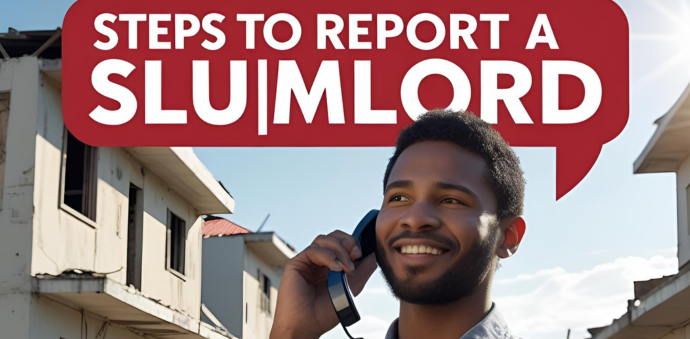
Dealing with a negligent landlord often called a slumlord who refuses to maintain your rental or fix serious hazards can be frustrating and harmful to your health and safety. If your landlord isn’t addressing repairs, ignoring code violations, or making your home unlivable, it’s important to know how to report a slumlord in North Carolina and protect your rights.
This guide will walk you through the steps to report landlord neglect effectively, help you understand who enforces housing laws, and empower you to get the help you need.
A slumlord is a landlord who neglects their legal duties by failing to:
Such negligence can lead to dangerous conditions like mold, pests, broken plumbing, faulty heating, or structural problems. Landlords in North Carolina are legally obligated to provide habitable premises, as outlined in the Residential Rental Agreements Act (N.C. Gen. Stat. § 42-42).
Before filing a complaint, make sure to:
Documentation creates a clear record and strengthens your complaint.
State law typically requires landlords to address repair requests within a "reasonable time," which can vary by issue but often means within 30 days. For more on "reasonable time," see: How Long Does a Landlord Have to Make Repairs in North Carolina? Your Tenant Rights Explained. If the landlord ignores your notice or fails to fix urgent health and safety problems, it’s time for the next step.
Depending on where you live, you can report your landlord to various government offices that enforce housing standards:
Filing a complaint usually triggers inspections, and landlords may face fines or legal action if they fail to comply.
Reporting a slumlord not only works toward improving your living conditions but also helps protect neighbors and prevent unsafe housing from continuing. Government agencies rely on tenant complaints to identify patterns of neglect and enforce housing laws.
If you’re living with unsafe conditions or a negligent landlord, contact us today for a free consultation. We can help you:
Stand up for your right to a safe, habitable home. Reach out now for expert help and support.